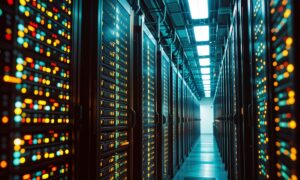AI Agents Are Set to Transform Your Job Responsibilities—Learn How to Keep Up

The Rise of AI Agents: Transforming the Workplace
In recent years, artificial intelligence (AI) has made significant strides, particularly through chatbots like ChatGPT. While these chatbots have greatly improved communication and efficiency, they have a notable limitation: they primarily provide information without executing tasks. Enter AI agents, a new wave of technology that builds on the same large-language model (LLM) technology but significantly expands capabilities, allowing them to perform complex tasks with minimal human intervention.
What Are AI Agents?
AI agents are more advanced systems that can interface with various technologies to execute tasks independently. For instance, they can interact with e-commerce websites to place orders, or use web design tools to create comprehensive websites. If necessary, they can even write and deploy their own code to complete tasks that may not have a pre-existing solution.
The Implications of AI Agents
The introduction of AI agents brings both excitement and concern. While some view this technology as a threat to jobs, others see it as an opportunity for enhanced productivity and time efficiency. Let’s explore how AI agents can impact our work life.
Automating Routine Tasks
One of the significant benefits of AI agents is their ability to handle repetitive, mundane tasks. For example, companies like Microsoft envision AI agents taking over responsibilities such as processing returns, reviewing invoices, and providing updates to field workers. Unlike traditional AI, which can only suggest what should be done, AI agents actively perform tasks by connecting with necessary tools and data.
Tech giants like OpenAI, Amazon, and Google are investing heavily in this technology, hoping to make work-life easier by automating tedious responsibilities. This could include tasks like data entry, handling common customer inquiries, and conducting security checks.
Enhanced Decision-Making
AI agents also improve data-driven decision-making. In workplaces today, making decisions based on real-time data is essential. AI agents can not only raise alerts and identify issues but also analyze trends to make informed choices.
For example, an AI agent could assess a business’s marketing strategies and current market trends to develop a complete marketing campaign. It can manage everything from budgeting for advertising to analyzing results, adapting strategies for future effectiveness.
Collaborating with AI
As AI agents become integrated into everyday work, workers may start perceiving them as coworkers rather than just tools. Whether in manufacturing, fieldwork, or office settings, we will increasingly notice AI agents affecting our workflows. Despite initial apprehensions, as employees become familiar with AI’s capabilities, they may find these technologies beneficial rather than intimidating.
AI can assist in various sectors, including agriculture, where automated machinery can manage tasks like planting and harvesting crops, or in customer service, where AI learns from interactions to develop solutions autonomously.
Focusing on Meaningful Work
With AI agents managing tedious tasks, employees may find themselves with more time for meaningful work. This shift enables professionals to spend more time on activities that genuinely engage them and contribute to significant change. For example, educators may shift their focus from grading papers to interacting with students, while managers might concentrate on strategic planning rather than mundane administrative tasks.
The Importance of Human Skills
As AI takes over technical tasks, the human skills that machines cannot replicate will become increasingly valuable. Skills like leadership, emotional intelligence, and creative thinking will remain crucial, as AI cannot yet inspire teams or navigate complex social dynamics. Therefore, investing in personal growth and developing these unique skills will be essential for professionals aiming to stay ahead.
Ethical Considerations of AI
The rise of AI agents also brings ethical challenges. Many workplaces currently lack clear policies regulating AI usage, and as AI continues to develop, the potential for harm due to misuse or misunderstanding grows. Issues can arise, particularly in creative industries, where artists claim their work is being used for AI training without proper compensation. Retail brands have faced backlash for using AI-generated content without considering its implications for jobs.
Preparing for the Future
Ignoring the impact of AI agents on your professional life is not an option. Understanding how they might influence your career, industry, or workplace is vital. Once familiar with the potential effects, exploring available tools and platforms will help maximize the advantages AI offers.
Although AI may lead to some job losses, being proactive in learning and adapting can help individuals leverage AI advancements rather than fall victim to them. Preparing for this technological shift is crucial for anyone looking to thrive in the evolving workplace landscape.





